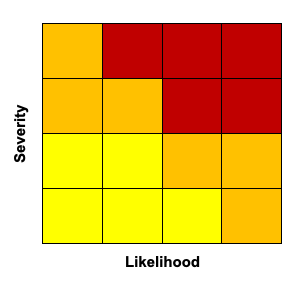| SUSTAINABILITY |
| Human Rights |
 The objective of human rights due diligence is to identify, prevent, mitigate adverse human rights impacts that occur from ThaiBev’s business activities throughout value chain, as well as to identify and assess how ThaiBev addresses those impacts and remedies affected stakeholders.
The objective of human rights due diligence is to identify, prevent, mitigate adverse human rights impacts that occur from ThaiBev’s business activities throughout value chain, as well as to identify and assess how ThaiBev addresses those impacts and remedies affected stakeholders.
Also the human rights risk assessment covered 100% of ThaiBev’s Tier 1 suppliers.
The scope of ThaiBev’s relevant human rights are shown below.
Human Rights Risk Mapping





2 |
3 |
| Severity Level | Scale
(Level of impact) |
Scope
(Numbers of affected people) |
Remediability
(Capacity in remediation) |
| Critical (4) | Significant impact to health condition and danger to life, which can cause physical disability or fatality | Impact to all stakeholders in the relevant group (e.g. all community members, all employees and all suppliers) | Impossibility to remediate relevant stakeholders and/ or taking longer than 5 years to remediate (> 5 years) |
| High (3) | Impact to health condition and safety, which can cause loss time injury | Impact to most stakeholders in the relevant group | Possibility to remediate relevant stakeholders by taking time around 3 - 5 years |
| Medium (2) | Slight impact to health condition and safety, which can cause minor injury with need of medical treatment from doctor (no loss time) | Impact to some stakeholders in the relevant group | Possibility to remediate relevant stakeholders by taking time around 1 - 3 years |
| Low (1) | No impact to health condition and safety – only first aid case | No impact to relevant group of stakeholders | Possibility to remediate relevant stakeholders by taking time less than 1 year |
| Likelihood Level | Description |
| Very likely (4) | Occurs all the time |
| Likely (3) | Occurs frequently |
| Unlikely (2) | Occurs rarely |
| Very unlikely (1) | Almost never |





| (1) | Employee Health and Safety |
| (2) | Employee Working Conditions |
| (3) | Employee Discrimination & Harassment |
| (4) | Supplier Health and Safety |